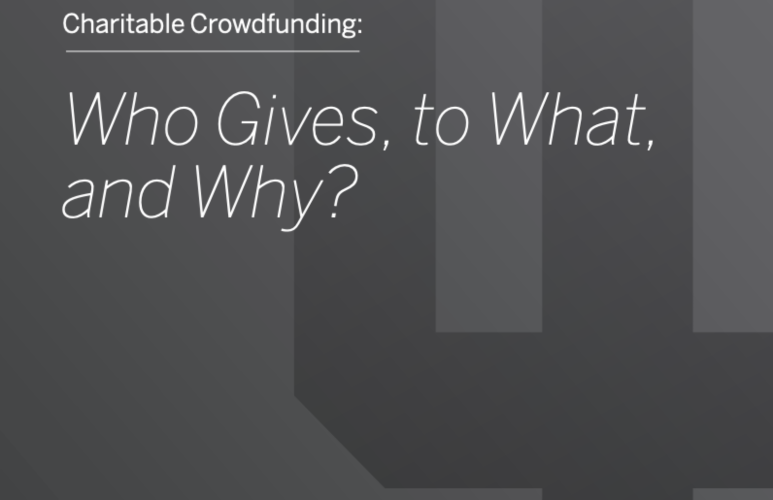Crowdfunding and social media donors are more likely to give to family members or a friend than a stranger but when asked specifically about giving generally during the pandemic, they were slightly more likely to give to strangers.
More than half of crowdfunding or social media donors (52.5%) contribute to a family member or close friend compared with nearly one-third (29.3%) who contribute to a stranger. When asked specifically about giving generally during the COVID-19 pandemic, 38.5% of all donors said they gave to strangers and 47.2% of donors who typically contribute to crowdfunding campaigns gave to strangers.
The statistics come from a new study, Charitable Crowdfunding: Who Gives, to What, and Why?, by Indiana University Lilly Family School of Philanthropy at IUPUI. The report uses data from a survey of U.S. households conducted during September 2020. The sample of 1,535 adults was weighted to ensure results are representative of the general population. The study was conducted with support from Facebook.
“One of our big questions around 2020 is that in addition to studying how donors were giving, we were also looking at how philanthropy was changing during the pandemic,” explained Una Osili, Ph.D., associate dean for research and international programs and Efroymson Chair in Philanthropy at the Lilly Family School of Philanthropy. “There was an increased opportunity for technology to play a more central role in philanthropy,” she said during a recent episode of Fresh Research, a podcast by The NonProfit Times.
“What is very clear is that crowdfunding now is an important part of the philanthropy landscape and that is likely to continue going forward,” she said.
The report’s researchers look at how crowdfunding fits into the larger philanthropic landscape and perceptions of crowdfunding by both crowdfunding donors and non-crowdfunding donors. It also examines Americans’ charitable behavior during the COVID-19 pandemic and giving for social justice.
The average total donation to a family member or friend is $79 compared to $10 to a stranger. Donors to crowdfunding campaigns gave an average of $189 in 2019.
Crowdfunding donors tend to be more diverse, younger, less religious and more likely to be single, compared to traditional charitable giving donors. Nearly 20% of donors typically give to social justice causes. A higher percentage of those who give through crowdfunding (27.7%) or social media (28.6%) support social justice causes, compared to traditional charitable donors.
More than half of both donors to crowdfunding campaigns and non-crowdfunding donors believe crowdfunding makes it easy for contributors to give and is a good way to highlight projects and organizations, according to the survey. At the same time, more than half of both types of donors share issues around accountability and transparency in crowdfunding. Still, nine out of 10 crowdfunding donors indicated they plan to increase or maintain their charitable crowdfunding over the next three years.
During 2020-21, the COVID-19 pandemic, the racial justice reckoning and a recession accelerated use of crowdfunding by individuals to address health and economic hardships and to raise funds for a variety of racial and social justice causes.
“Crowdfunding has the potential to extend opportunities for generosity to a wider audience because of its digital presence, the apparent ease of using such platforms, and the ability to connect donors to both causes and individuals they wish to support,” said Amir Pasic, Ph.D., the Eugene R. Tempel Dean of the school. “Crowdfunding amplifies traditional charitable giving beyond giving to institutions to include direct giving to individuals,” he said.
The complete 24-page report can be accessed here.









